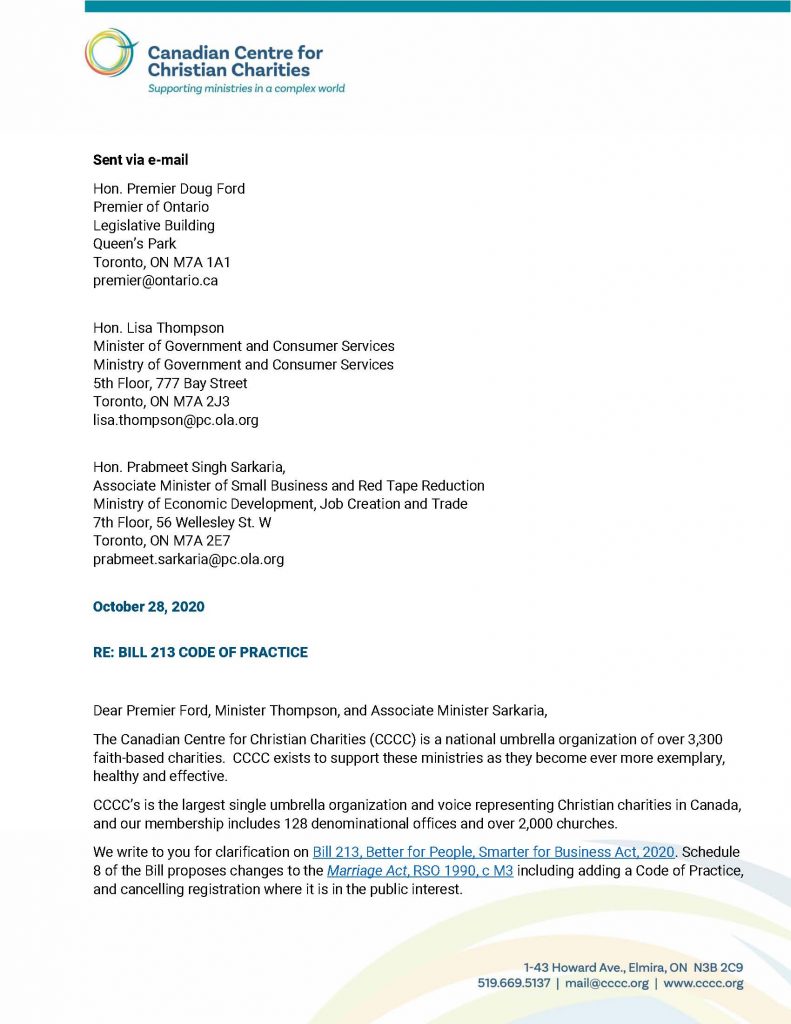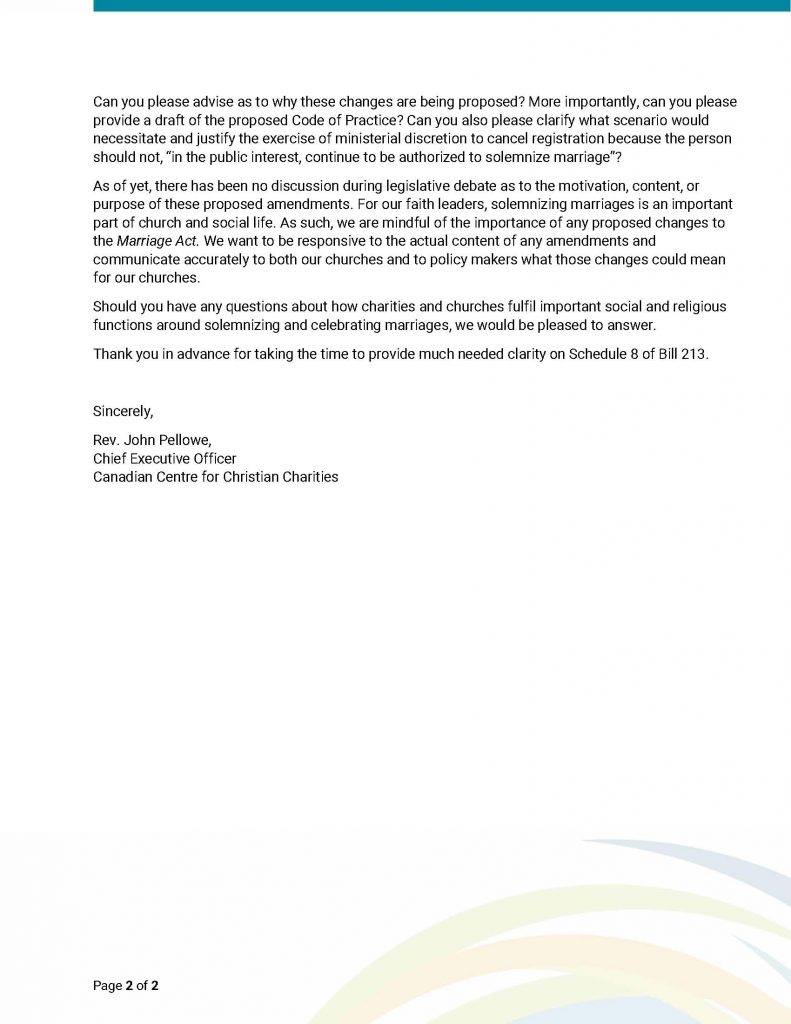Bill 213 proposes a Code of Practice for marriage officiants – what does this mean for clergy?
Bill 213
Bill 213 in Ontario is an “omnibus” bill which basically means that it has a lot of parts that aren’t necessarily related. This bill has 29 “schedules” each of which proposes to amend a different piece of existing legislation.
Schedule 8 relates to the Marriage Act. Among other things, the Marriage Act sets out who can be married, who can perform marriage ceremonies, how religious bodies are registered, civil marriage, paperwork requirements, and the type of oversight exercised by the government regarding marriage.
There are two key proposed changes to the Act.
First, it would add a Code of Practice. Every person authorized to solemnize marriages would need to comply with a Code of Practice made by the Minister. To be clear, this Minister is the government Minister who leads the ministry responsible for administration of the Act.
Second, it modifies the terminology around when the Minister (again, the government Minister) can cancel the registration of a person authorized to solemnize marriage. The change would allow cancellation where it is not in “the public interest” for the person to continue solemnizing marriages.
What’s the change all about?
The reality is that we don’t really know. At this point, there is nothing in the Bill that tells us what problem may have prompted the change, and the debate in the legislature (at last check!) didn’t touch on this change at all.
Before we jump to any conclusions or make assumptions about the ability of clergy to perform marriages, it’s important to get as much information as possible.
What is CCCC doing?
Because there is an entire lack of clarity about exactly what the Code of Practice could look like or when the public interest would apply to cancel a registration, CCCC has written to ask for clarification and detail.
Specifically, CCCC asked:
- Why are these changes being proposed?
- Can we please review a draft of the proposed Code of Practice?
- Can you please clarify under what scenario the Minister would cancel a registration because of a public interest reason?
And Don’t Forget…
There is legislative protection for the religious community to perform marriage ceremonies in accordance with belief. That is affirmed in both the Civil Marriage Act federally, and in provincial legislation, such as the Human Rights Code.
Marriage is, of course, an integral part of church and social life and we at CCCC are very mindful and aware of the importance of any proposed changes to the Marriage Act.
We want to actively – and accurately – communicate about what any changes could mean for our churches. The first step is to ensure we know what is being proposed. We will keep you posted about the response we receive.
In the meantime, you can reach out to your own member of provincial parliament and ask the same questions as CCCC has asked. Our letter is here:


The content provided in this blog is for general information purposes and does not constitute legal or professional advice. Every organization’s circumstances are unique. Before acting on the basis of information contained in this blog, readers should consult with a qualified lawyer for advice specific to their situation.


